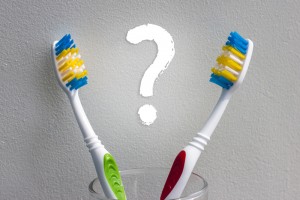10 Great Questions for Your Dentist
When patients come into the dental office, many of them have questions about their oral health. Many questions about your oral health have simple solutions so that you can have a healthier mouth. Here are some of the most frequently asked dental questions and answers dentists get!
Why do I need a dentist?
Studies show that at least 92% of Americans have had tooth decay—or “cavities”—sometime during their life. When you eat, some of your mouth bacteria start to break down your food for digestion. Other mouth bacteria mixes with sugar in your food to create plaque. Plaque is a sticky, clear substance that sits on your teeth. Because it’s acidic, it will break up the minerals in your teeth, causing dead areas called “cavities”. The acid will also make your gums recede. That recession can get bad enough that your teeth become loose or fall out.
Gums become mushy, decay spreads and you will lose your ability to eat. Dentists have 10+ years of experience in correcting decay, gum issues, finding oral cancer, performing oral surgery and even doing orthodontics in some cases. If you want to avoid oral heal diseases, then yes, you do need a dentist!
How often should I see a dentist?
The American Dental Association (ADA) recommends visiting a dentist at least twice a year for comprehensive exams and dental cleanings. This is a time for new cavities or gum issues to be detected before they grow severe. Patients with gum disease, severe decay issues or chronic conditions may need to see a dentist more often. See what your dentist suggests.
How often should I brush my teeth?
The ADA recommends brushing your teeth at least twice a day to avoid dental decay. Brush with fluoride toothpaste to remove plaque and to strengthen the teeth. Brush your teeth for at least 2 minutes at a time and especially before bed.
Do I need to floss?
The answer is yes! You definitely need to floss if you want to avoid cavities and gum issues. Brushing your teeth is great, but if you skip flossing, then you miss about 40% of your tooth surfaces that can decay. Make sure you get about 18 inches of new floss each time. Floss up into your gum line, making sure to scrape your teeth gently as you floss to remove stuck-on plaque.

How do I care for my child’s teeth?
You care for your child’s teeth like you care for your own. Brush your child’s teeth (if they are 3 or under or need assistance) at least twice a day. Floss the teeth once they are close enough together that they are touching. Using flossers makes flossing easy. Avoid giving your child sugar, sugary drinks, suckers, or other substances that can harm their teeth. Never put a baby down with a bottle for the night and don’t put anything but milk or water in their bottles or sippy cups to avoid dental decay. Once that first tooth comes into the mouth, an infant needs oral care every day. Start them with seeing the dentist between 18 months and 3 years.
How do I prevent cavities and gum disease?
Do the basics! Brush your teeth at least twice a day and floss 1-2 times a day. Use mouthwash to kill germs in your mouth that would cause cavities. Use fluoride as prescribed by your dentist. Make sure you also see your dentist at least twice a year for exams and cleanings. It’s that easy!
What will hurt my teeth?
Foods and substances with chemicals in them will hurt your teeth. Any sugary substance—especially drinks like sodas and juices—will decay your teeth. Avoid carbonated (fizzy) beverages, which contain carbonic acid that erodes your teeth. Anything citrus or with citric acid in it will do the same. Check food labels to control your sugar intake, as the more sugar you eat, the more plaque your mouth will make and the more your teeth will erode and decay.
How can I get my teeth whiter?
The quickest way to whiten your teeth is in-office whitening. Only dentists have materials to whiten your teeth that you can’t get commercially or at the grocery store. If you want a slower white or to maintain a white smile, invest in whitening toothpaste. However, you must check the label on your product. A toothpaste will only be “whitening” if it has hydrogen peroxide or carbamide peroxide in it. All others will simply remove plaque on your teeth. We suggest whitening your teeth in-office to prevent a spotty smile, then maintaining with a whitening toothpaste.
Does tobacco and alcohol hurt my teeth?
Yes! Tobacco and alcohol products will stain your teeth and decay them. Both contain chemicals and substances that kill cells and nerves, which will damage all the surfaces of your body that they touch. Tobacco is proven to cause oral cancers that can kill you and alcohol will damage the soft tissues of your mouth. Acids and chemicals will cause cavities, decay, color changes and thinning teeth rather quickly. Avoid both tobacco and alcohol to avoid disease.
Why are my teeth sensitive?
There are a few common causes of tooth sensitivity that include cavities, gum recession, sensitivity from teeth whitening products, tooth injuries, a chipped filling, TMJ or bruxism (teeth grinding/clenching). If you only feel sensitivity or sharp pain when biting down, it’s likely a cracked tooth or filling and you should see the dentist ASAP.
If you only experience sensitivity in the winter months, it could be a bit of your tooth root coming in contact with hot/cold foods and drinks or cold air. We can take x-rays of your teeth to spot cavities or injuries to your tooth. If you have this sensitivity simply from the cold, we can provide you with sealants to help protect that tooth area.
For additional questions you have, call Dr. Evanson’s office today at (720) 409-0008!
Leave a reply →








